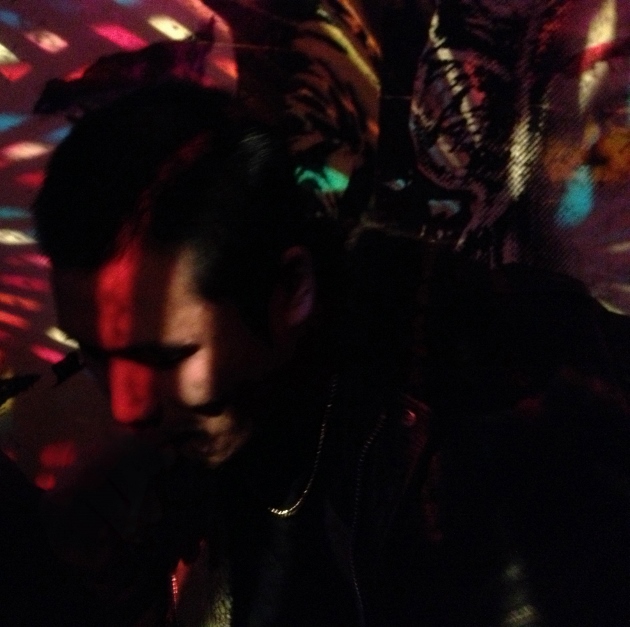“I don’t care about pleasing your expectations. I was crying my fucking eyes out when I wrote this and punching myself in the face. This is why I’m doing this record. It’s for myself and my life.”
So wrote an impassioned Alex Hungtai, in response to a disgruntled YouTube commenter who took issue with his gorgeously flowing instrumental “Love is The Devil” when the track surfaced last winter. If there’s one cliche above all others that seems to define our current mode of indie culture, it’s the idea that what came before is always better than whatever is next. People will pine for your halcyon days past until you rot. People will always insist you’re selling out.
Alex Hungtai, however, as you may have guessed, does not give two tin shits what anyone else expects of him. In a time when so many bands are clearly angling for hitting the reliable, relatable pleasure center of so many fans’ brains, Hungtai is striking out in a bold, lonely direction, pleasing himself first, and openly so. It’s perhaps what makes his newest collection of small masterpieces as Dirty Beaches, the double album juggernaut Drifters/Love Is The Devil, so much a product of its time. These songs aren’t just raw, but emblematic of an encroaching era where there remain few sacred barriers between fans and artists, and after years of sarcasm and easy irony, it seems thinking music fans might be ready for some hot-blooded sincerity again.
Well, sincerity is here in immeasurable doses, friends! Gone are most of the greaser-era Lynchisms of Badlands, replaced instead with touchingly melodic ambient bliss-outs, and more compact songs that seem deeper, somehow more tangible than the lo-fi pop exercises that preceded them. As the conventional rules regarding the ‘album’ format wane and wither, so many artists, from Swans to Joanna Newsom to The Knife, are growing comfortable stretching out with epic lengths and over-the-top displays. Sometimes, this can mean a mere artistic indulgence, egomania let loose to run unchecked. In the case of Dirty Beaches, it’s a necessarily grandiose statement on longing, loss, and the ache of love’s departure.
Make no mistake, most everything here is still layered in a pulled-taffy gauze of murk, and that’s just how it should be. “Landscapes In The Mist” floats along on echoing clicks, pulled drearily in and out of focus by a wavering, ethereal saxophone. Elsewhere, “Belgrade” is all ominous John Carpenter synths, sounding like an earthier variation on what Emeralds were aiming for in the Does It Look Like I’m Here? days. Over on the Love Is The Devil end of things, almost everything encountered is emotionally-stirring synth work or eerily-plucked, reverb-washed guitar, the crown synth jewel being the jaw-dropping title track itself (all YouTube trolls aside). The fact that Hungtai’s transition into more ambient realms seems entirely natural, rather than odd or jarring, is a testament to his ear for quality.
The more song-styled moments equally amaze, full of spit-spraying, hungover/lovestruck howling and terrifyingly sociopathic growls. The chintzy drum machines and broken Casio burbles power along like the Human League being mugged in a dark alley by Suicide, while Hungtai pries scorching anguish from the very bottom of a ravaged soul. He even manages to beat The Raveonettes at their own retro-obsessed game on “Night Walk.” Sometimes (okay, most of the time), the lyrics are hard to make out, but that’s surely by design rather than inexperience; the point here is the emotion displayed in the context of the voice itself, which communicates all on its own more than any lyric sheet ever could.
So, how is it that a double album totaling nearly eighty minutes of material has not one noticeable weak spot or hint of filler in the mix? Believe me, it may be hard to take my word for it, but it’s true. In purging his guts and diving into something deeper than just warped fifties nostalgia, Hungtai has truly come into his own as an artist with an unique voice and a compelling message. He’s fulfilled every promise made by Badlands and then some, and despite whatever depths of pain made such an eruption of shattered awesome possible, he’s managed not just one of the best albums of the year, but one of the most genuinely moving, as well.


